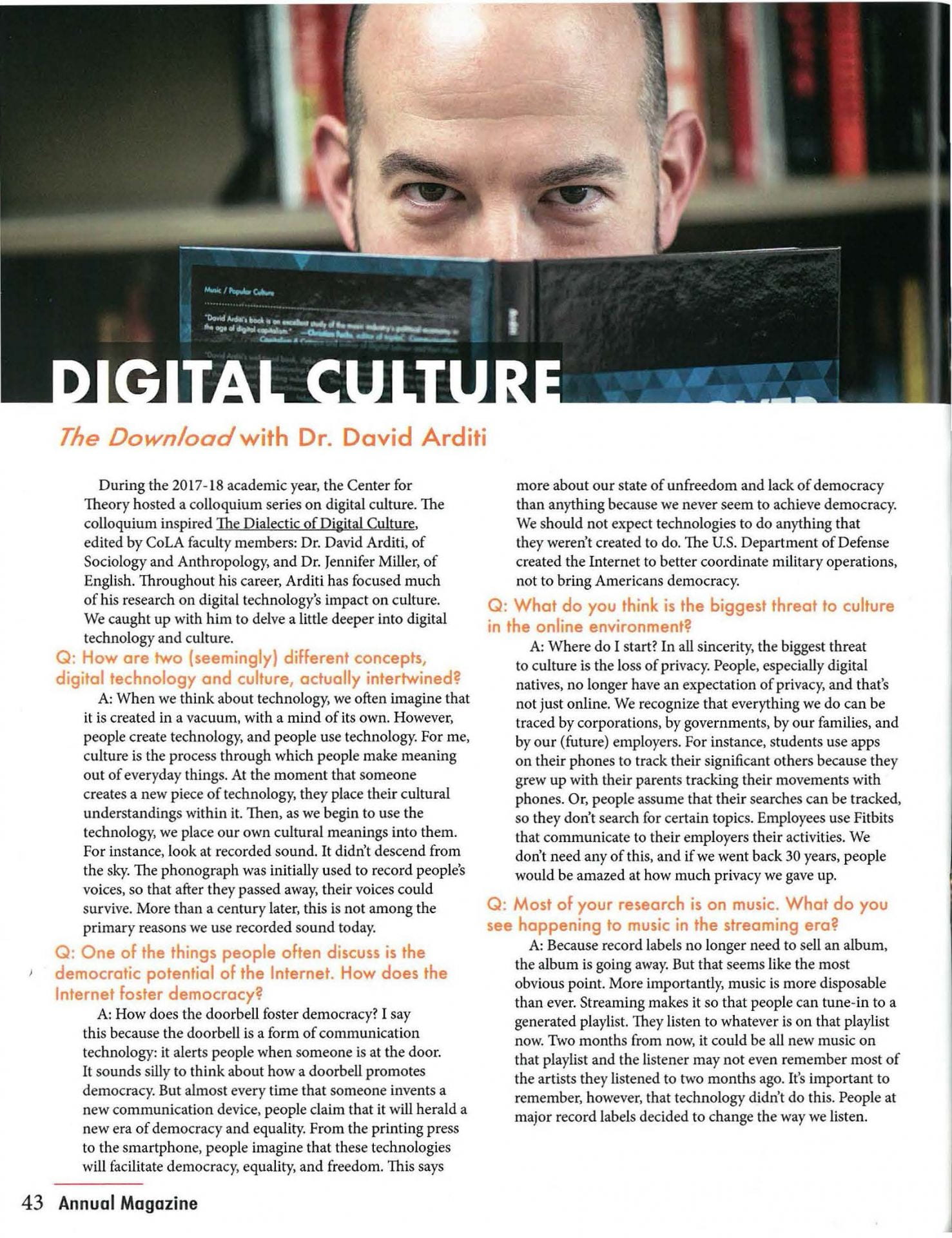David Arditi, the Director fo the Center for Theory and co-editor of The Dialectic of Digital Culture conducted an interview for The University of Texas at Arlington’s College of Liberal Arts magazine. Read the interview here.

David Arditi, the Director fo the Center for Theory and co-editor of The Dialectic of Digital Culture conducted an interview for The University of Texas at Arlington’s College of Liberal Arts magazine. Read the interview here.

Four of the contributors to The Dialectic of Digital Culture presented at the 2019 National Women’s Studies Association conference in San Francisco, CA. Jennifer Miller, Amy Speier, Ariella Horwitz, and David Arditi presented their work and caught up with Lexington Books’ Courtney Morales, the acquisitions editor. Here are the pictures!
 While The Dialectic of Digital Culture was supposed to be published in mid-September, the team at Lexington Press is incredibly efficient and released the book early!
While The Dialectic of Digital Culture was supposed to be published in mid-September, the team at Lexington Press is incredibly efficient and released the book early!
Jennifer Miller and I spent the weekend in New York City attending the American Sociological Association Annual Conference. When we arrived, our fabulous editor Courtney Morales had her copy in print. Then we started receiving emails and texts from contributors that in fact the book arrived. Of course, since we were away from home, we didn’t receive our copies until Wednesday.
The book would not have been possible without the support of the University of Texas at Arlington’s College of Liberal Arts, Department of Sociology and Anthropology, Department of English, and the Center for Theory. We’re also grateful for all of our wonderful contributors.
The books look great and I couldn’t be happier with the result. Thank you to Courtney, Shelby Russell, and the rest of the team at Lexington Books. Order your copy now.
Here are some pictures from the American Sociological Association conference.
You can now order The Dialectic of Digital Culture. If you order through the Lexington website, you can use the code LEX30AUTH19 to receive a 30% discount.
Arditi and Miller wrap some excellent essays with an introduction and conclusion centering on Frankfurt School dialectical theory and the emergence of the digital disaster. The core of the book deals with the idea of a digital dialectic and its analysis in chapters on power, politics, culture, and being human. The editors have lined up a stellar group of essays that profoundly engage our digital world and the edges between questions of music, economy, ecology, memes, and related topics. The dialectical nature of the analyses provides both an entryway and unity to the essays. The book makes numerous substantive contributions to several fields and is worth a read for its scholarship and for those building a knowledge base about our contemporary digital world.
In The Dialectic of Digital Culture, Arditi and Miller have assembled a fascinating collection of essays exploring the promise and peril of contemporary digital culture. Insisting that we think about digital media dialectically—as both empowerment and capture—the authors collectively inspire readers to pierce through facile narratives of progress and to think more critically about their relationship to digital technologies. Readers will also find the rich diversity of technologies, platforms, practices, and case studies covered in this book to be engaging and enlightening. This is required reading for students and scholars of digital culture.